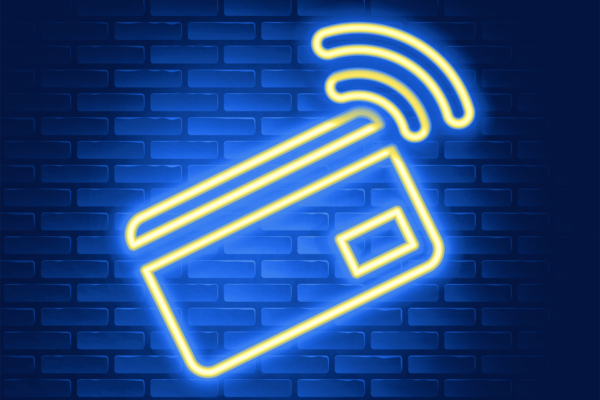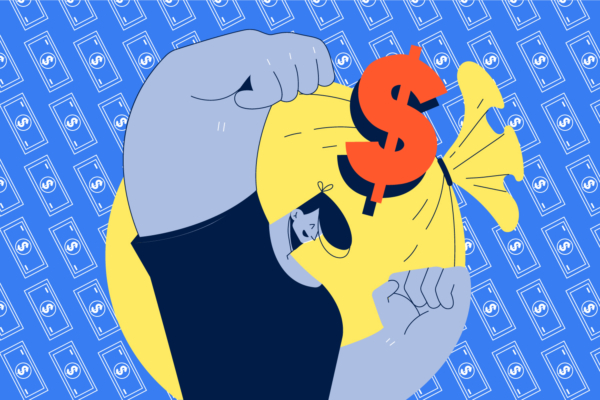
Why, How, and When to Check Your Credit Score

Building a solid financial foundation is a complex process. From budgeting to saving, there are so many things that go into building a solid financial foundation.
One of the most essential— and overlooked— aspects? Regularly checking your credit score!
Here’s what you need to know about why, how, and when to check your credit score to keep your finances in tip-top shape.
Fee-Free Banking is Here
Looking for a financial institution that doesn’t nickel and dime you? If you live or work in Texas, join Amplify!
Why You Should Check Your Credit Score
Your credit score is a reflection of your financial health and plays a role in everything from getting a personal loan to opening a retail credit card. But understanding the three-digit number goes beyond just getting approved for credit.
Here are four reasons to check your credit score.
Reason #1: Prepare for Major Purchases
If you’re planning on making a major purchase, such as a car or house, knowing your credit history ahead of time will give you an understanding of a few key things.
- Whether or not you’ll get approved for a loan: Lenders look at your credit history to determine whether you are a creditworthy borrower.
- What you might need to do to get your credit in better shape: A full credit report may reveal issues that are dragging down your score like high credit utilization or late payments. By identifying these problems early on, you give yourself time to work towards better credit.
- What kind of loan terms lenders may offer: A higher credit score could even save you money in the long run by qualifying for lower interest rates on loans.
If you plan on making a large purchase in the future, be sure to see where your credit score stands.
Reason #2: Monitor Financial Security
Another reason to monitor your credit regularly: you’ll be able to notice any suspicious activity that may be occurring with your accounts.
If there are items that you don’t recognize on your credit report, like a new loan or a large financed purchase, this could indicate that something fraudulent might be happening with one or more of your accounts. If you notice fraudulent activity early, you may be able to prevent extensive damage from identity theft—or at least get a bigger head start at repairing the damage.
Reason #3: Dispute Errors
An error on your credit report doesn’t always indicate malicious activity. Sometimes things are simply misreported. Still, incorrect info can damage your borrowing reputation. If you catch an error, it is important to dispute the false information.
The best way to reach the credit bureaus is to fill out their provided dispute form and include copies of all supporting documents. There are multiple ways to file a dispute, including by mail, online, or over the phone.
The Federal Trade Commission offers a handy guide that outlines the exact steps you should take to resolve issues, as well as a great sample letter to send when disputing errors.
If the charge is a mistake or the collections agency cannot provide proof that it even owns the debt, it will be taken off your report. You’ll need to file a dispute with the other bureaus as well—they don’t typically share information with each other.
Reason #4: Stay in Good Financial Health
Your score reflects how you use credit. A good score indicates responsible use— on-time payments, low credit utilization, and few hard inquiries. A poor credit score is a sign that you may need to adjust some financial habits or prioritize debt repayment.
If you check your credit score and it’s not where you want it to be, create a plan to pay off debt and pay bills on time— two things that will ultimately improve your financial situation.
When to Check Your Credit Score
There’s never a bad time to check your credit score. Experts recommend checking in on your credit at least once a year under ordinary circumstances. However, it is especially important if:
- You’ve recently been a victim of identity theft, fraud, or a data breach
- You plan on making a large purchase (vehicle, home, etc.) in the near future
- You want to open a new line of credit
- There’s been a change to your credit situation, such as paying off a loan
In cases of identity theft, fraud, or a data breach, it’s a good idea to look at your credit report every few months. This can help clue you in to any problems that need to be addressed.
How to Check Your Credit Score
In today’s digital age, checking your credit score has never been easier. Here are a few ways you can check in on your credit score or get copies of your credit report.
1. Request your free annual report.
The first thing you should do is request a free annual report from Equifax, Experian, and TransUnion, which are the three major credit bureaus.
Most people are eligible to receive one free report per year from each of these agencies. Keep in mind that the reports from each agency may contain different information. For example, some agencies might not list an account that appears on another agency’s report.
For more information on how to get free copies of your credit report, visit annualcreditreport.com.
2. Check with your credit card companies for free credit checks.
Many credit card companies actually offer free credit checks as part of their services or products. Other institutions may offer similar services as perks for being a customer; for example, some investment firms may partner with a third-party service that allows them to access their score for free.
Check with your credit card provider to learn if this is a perk they offer.
3. Sign up for a credit score service.
If you are unable to get a free copy of your score from any other source, you can sign up for a service that will monitor and provide updates on your score over time. There are two paths here: a free service and a paid one.
- Free: These services include Credit Karma and Mint, but their usefulness is complicated. These free services aren’t always correct. Depending on what kind of loan you’re looking for, the credit score shown online might be way off from the actual score a lender would pull.
- Paid: These days, credit monitoring services abound. Whether you’ve been subject to a data breach or you just want to be extra careful, there can be some piece of mind to be gained here. These services might be more expensive than simply ordering one-off reports from the three major bureaus, but they can be helpful.
Get Your Score Today
Regularly checking your credit scores is an essential part of financial health management in today’s day and age. Keeping track of where you stand financially allows you to make informed decisions when applying for loans or making major purchases. It also provides you with an extra layer of security and fraud detection. Knowing where you stand financially can keep you prepared for whatever life throws your way. Here at Amplify, we’re here to help you reach your financial goals—no matter where you are in your current journey. Check out our articles on “Money Management” for more resources.
Become an Amplify Member
Every Amplify account holder enjoys fee-free banking. That means no overdraft, maintenance, or other banking fees cutting into your pocket.




